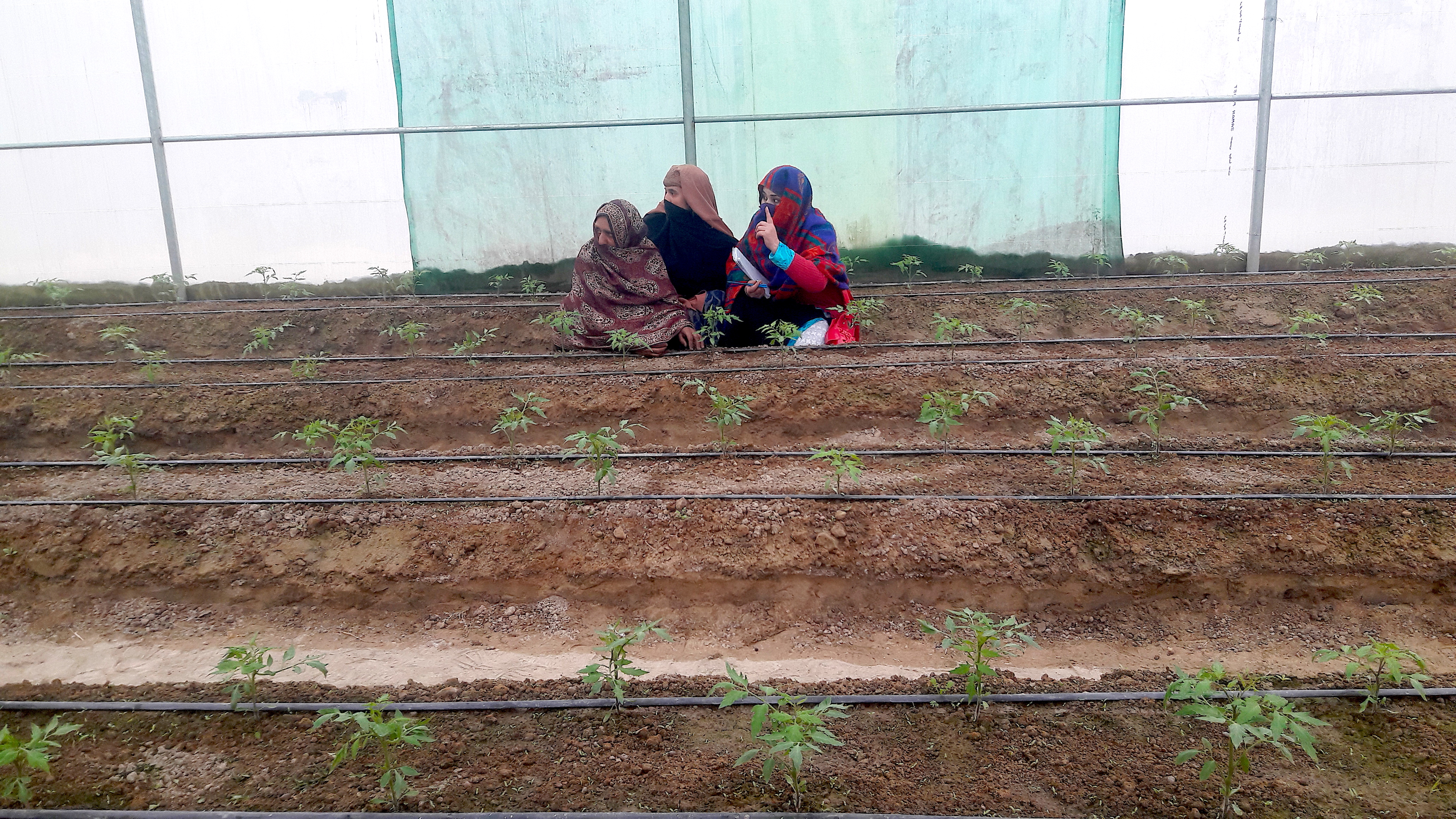A UNDP Afghanistan-supported greenhouse in Kuz Metakhil of Jalalabad province. © UNDP Afghanistan / CDRRP
Water does not reach the hills of Nangarhar, where the ground is barren and stony and life is harsh in small village of Kuz Metakhil. 48 years ago, local farmer Sawri was born into a country on the verge of wars that still haven’t ended.
Located east of Kabul along the Pakistani border, Sawri still lives in Kuz Metakhil with her husband, three sons and two daughters. The unforgiving land provides few opportunities for off-farm work, and while Sawri and her husband Rahman pursed the odd jobs they could find, often the children would have to wander far into the hills, cutting firewood to sell to their neighbours.
“We had to borrow money from relatives and neighbours. My children couldn’t attend school because I didn’t have money to buy their books,” Sawri remembers.
Kuz Metakhil and similar geographies are the focus of UNDP Afghanistan-supported programmes like the Climate-Induced Disaster Risk Reduction Project (CDRRP), which provided a greenhouse, vegetable seeds, fertilizer and training for Sawri and her family. CDRRP revitalizes struggling areas across Afghanistan by providing training in new skills and agricultural equipment to empower local people to grow their own fruits and vegetables, even on land that has been unproductive for generations.
Once a suitable area was cleared, Sawri and Rahman began to grow tomatoes. The greenhouse’s drip irrigation system supports the cultivated plants using relatively little water fed by local bore wells. It also keeps the tomatoes safe from pests and harsh weather.
“It’s been a great experience for us,” said Sawri. “The greenhouse helped protect our tomatoes while we heard that farmers growing crops in the open fields suffered losses.”
Sawri and Rahman produced more than 3,150 kgs of tomatoes in their first growing season and earned US$1,500.
“It was the first time I could buy gifts for my family and I was so proud,” Rahman remarked, as the family had never seen such a large sum of money before.
With their earnings, Sawri and Rahman bought 15 goats and can now fund their children’s education. This winter, they’ll buy their firewood instead of collecting it.
The Climate-Induced Disaster Risk Reduction Project (CDRRP) is a five-year project made possible by the Global Environment Facility Least Developed Countries Fund. Implemented by Afghanistan’s Ministry of Agriculture and supported by UNDP, the project has helped more than 800 farmers switch to high value crops and practise climate-smart techniques, such as crop rotation.

 Locations
Locations







